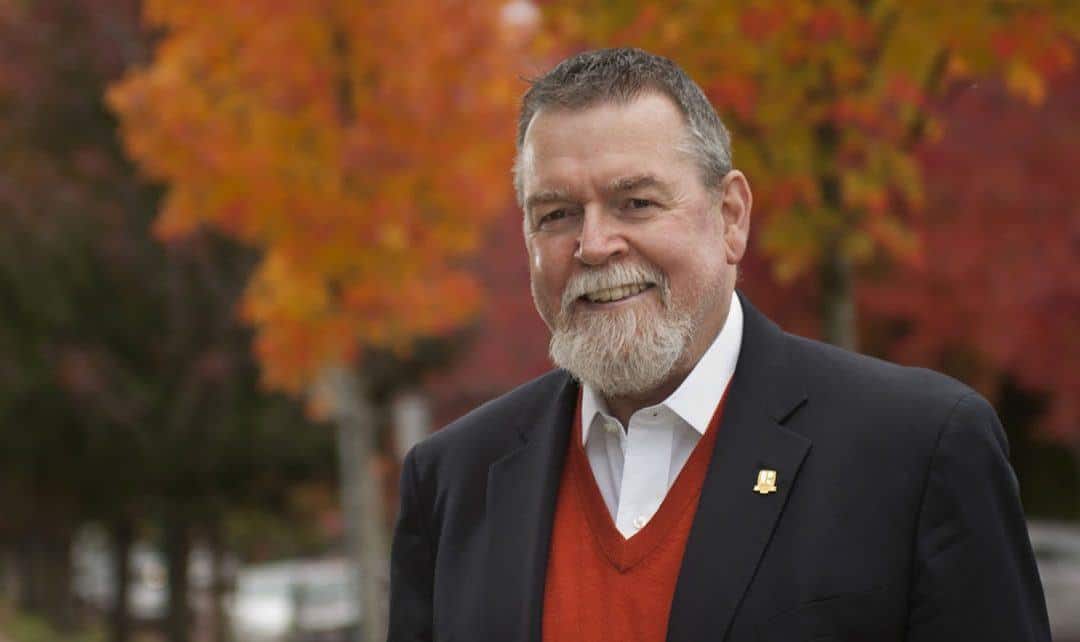In addition to his duties criss-crossing the country as president of CREA this year, Andrew Peck found time to get married – twice.
“To the same partner,” he says quickly. The couple was going to have a third ceremony at their vacation home in Florida, but after Hurricane Irma hit, they decided to redirect the money from the wedding party to hurricane settlement charities.
But most of Peck’s year has been spent talking to Realtors across the country.
“You can’t be good governors of an association unless you are out there listening to the membership, and when I say the membership, I mean the Realtor on the street, not the leadership of the real estate boards,” says Peck.
A few years ago, the three-way agreement under which organized real estate operates in Canada was altered so that CREA could reach out directly to members, rather than conveying all messages through the local boards and provincial associations. CREA shifted its focus from dealing exclusively with leadership of the boards to meeting Realtors through a series of Open House events.
Peck, who is the broker/owner of Royal Pacific Realty Group in Vancouver, says he’s proud the lines of communication have seen much improvement in the seven years he’s been on CREA’s Board of Directors.
The structure of ORE
The structure of organized real estate continues to be a major topic of discussion. Efforts to merge real estate boards and provincial associations failed in B.C. in 2016, and this year in Saskatchewan. As a member of the Vancouver board, Peck says he supported “right-sizing” through the amalgamation plan.
Recently “I was in Mississauga and one fellow told me he has to belong to four real estate boards to be able to provide services and connect his customers. I was shocked. That is not serving the Realtor and it certainly is not serving the consumer…I think local real estate boards have to figure it out. This is not about turf, it’s about doing the best thing for Realtors in general…”
He says real estate boards who worry about losing local control should realize “they are not going to lose anything. Is it about the building that houses the (board) or about the Realtors themselves who serve the community? If the real estate board is called something else, it doesn’t matter, the Realtor is still the same Realtor, the brokerage is still the same brokerage, working in that community. Nothing changes.”
A working group discussed the three-way agreement as recently as November at the National Association of Realtors conference. Peck says, “The conversation is always about efficiencies and doing more with less, but that conversation started a couple of years ago. A working group came forward with a summary paper in February this year, which said the agreement needed to have language in it to deal with disputes.”
Noting that PEI, Newfoundland and Nova Scotia are already operating with just two levels of governance, he says, “there are some boards that would like to modify the agreement and look at some creative ways of how to deal with it if there’s a disagreement, and not be locked into this three-way marriage if you don’t need to be. Should we be afraid of that? Some people might be, but I don’t think we should be. Some things might change but I think the provincial associations still have tremendous value and I think CREA has a leadership role to play in this and always will.”
Dual agency
Peck’s home province recently announced that dual agency would no longer be allowed. Peck says he thinks it’s a “moderate solution that is not killing the industry.
“I think Realtors believed that doing away with dual agency was doing away with double-ending and that’s not what they have done,” he says. “What (the government) said is, ‘We want enhanced disclosure to buyers who are not going to be represented. We want them to understand that if they were to have an agent working for them, an independent agent who was not working for the seller, that they would be afforded better help.’ Explain that to the buyer, that if they want to go with me and I’m working for the seller, that’s what it’s going to look like. I don’t think there’s anything wrong with that.
“There are a few (Realtors) who will chirp and say this is terrible and I don’t think they understand that this is not going to do away with your ability to work on both sides of the transaction.”
Government relations
Booming housing markets in Toronto and Vancouver put pressure on the governments to address debt and affordability issues, resulting in a host of government initiatives to slow down those markets.
“I don’t think governments generally should intervene much in markets. I think when they do, it has unintended consequences,” says Peck. “The more intervention there is, the more the markets work around them.”
He says CREA had a major win when the federal government amended its tax proposals for personal incorporation.
“CREA approached it the right way…not to scream at government and say they were idiots but to work with them, provide them with insight and some research and say we understand what you are trying to do, but let’s look at the ways we can all achieve the same thing. What has come down from this, we are really pleased and I think the government is really pleased.”
He adds, “There were others in the country who were lighting their hair on fire. Governments have big ears and it’s not helpful for Realtors in one part of the country to scream and say that they are setting up class warfare, or this is unfair to people who are generating income to the economy. That’s a stupid way to play politics. It is way more helpful to have the door open to you to be in the conversation.”
Marijuana
For example, he says the legalization of marijuana and the ability to grow it in your own home is a huge issue.
“What are we going to disclose going forward? In the past, we have said that Realtors must disclose if a property has been used as a grow op. How do we evaluate as a Realtor what’s a grow op and what isn’t? Stealing power and putting a factory inside the house, that’s pretty easy to understand. But when you’ve got four plants in your home, is that a grow op? Are the police going to tell us that? We have to come up with some solutions for that.”
CREA also continues to press the government to make changes to the Home Buyer’s Plan, including a provision that would allow parents to take money out of their RRSPs to help their children buy a home. However, the government is reluctant to provide any stimulus to the housing market at the same time it’s introducing measures like the new mortgage stress-test rules to slow down consumer debt.
New CEO
Peck says the biggest item on CREA’s agenda this year was finding a replacement for CEO Gary Simonsen, who is retiring at the end of the year. Michael Bourque, currently the CEO at the Railway Association of Canada, was named to fill the role after a long search.
“Unlike most associations, CREA is also a technology provider and that has a completely different skillset than association management,” says Peck. “We hired an expert to assist us and let them do their job. We don’t FSBO the experts. We let them do what they do and I think that was really helpful for us.”
Youth and diversity
As for other issues in the industry, he says, “I was pleasantly surprised to see the number of younger people getting in the business. For a number of years, we were looking at how the Realtor population was aging. Now we are seeing a lot more new blood coming in.”
But he says the leadership roles in boards and associations “are not reflective of the youth and they are not reflective of the ethnic diversity” of the population. “They are also not reflective of gender balance. That’s one of the things we have to pay more attention to because that’s the consumer out there. Their diversity is very different from what I see sitting on our boards of directors.”
Jim Adair is the Founding Editor of REM Real Estate Magazine. Jim retired in 2022, after 33 years at the helm.














